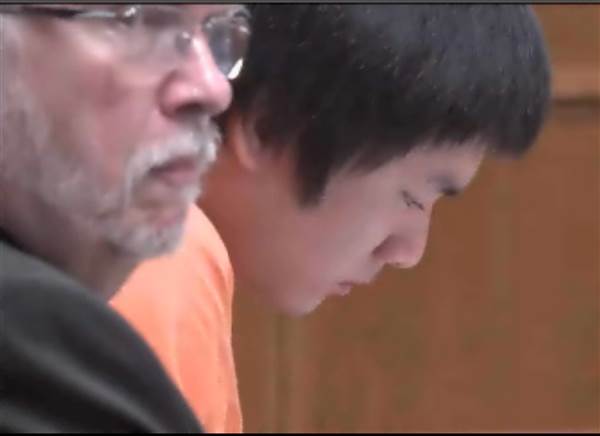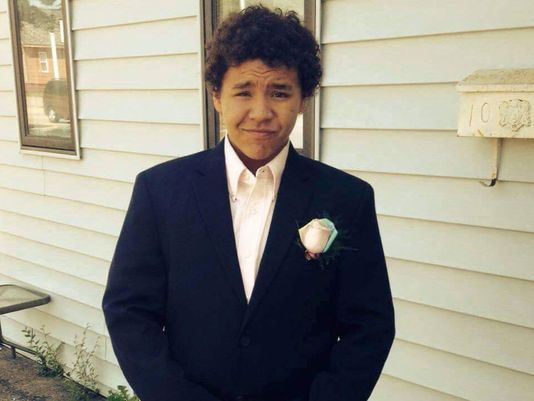
In a trial that has deeply shaken the Black and Asian communities of Wisconsin, 16-year-old Dylan Yang, who is Hmong American, was sentenced earlier this week to 13 years in prison and an additional 17 years of extended supervision in the stabbing death of 13-year-old Isaiah Powell early last year.
The incident began when in February of 2015, two groups of students began insulting one another on Facebook. Eventually, Powell and his group of friends drove to Yang’s family home to confront Yang and his friends. That confrontation escalated into physical violence, and Powell reportedly fired a BB gun he had brought with him. Yang then emerged from his house with a knife and confronted Powell, resulting in Powell’s fatal injury. Yang was arrested after the altercation and tried as an adult for homicide; Yang was 15 years old at the time.
Throughout the trial, Yang’s defense did not dispute that Yang had stabbed Powell. However, Yang’s defense attorney (whom evidence now suggests did a piss-poor job of representing his client) argued that he had acted in self-defense, believing that Powell’s gun was real, and not a toy. The Hmong American community in Wisconsin was further outraged by the prosecution’s rush to try Yang as an adult, as well as the repeated characterization of both Yang and Powell — two young boys of colour — as gang members. Local media and law enforcement were quick to suggest that Yang and Powell were part of rival race-based gangs, and suggested that the two could be found in social media throwing up gang signs. The truth, however, seems much more mundane: Yang and Powell were merely part of two different high school cliques who didn’t get along with one another, but who certainly weren’t hardened criminals.

In general, we believe that children should be protected. We covet their capacity to play — even if they sometimes play too roughly — and we cherish their innocence. We understand that children are still developing — emotionally and intellectually — and that therefore they may act brashly and without the best judgement. Consequently, we understand that under most circumstances children should not be held as accountable for their actions as an adult.
And yet, in America, children of colour are denied those privileges of childhood, and instead are forced by racism to grow up too soon.
The fact that many have been quick to label Yang and Powell gangmembers speaks to the potency of racial stereotypes facing youth of colour today. Stereotypes of poverty and criminality recast children of colour — particularly Black children — as hardened, physically dangerous thugs. Black students are more likely to be suspended or expelled for routine misbehaviour than their White peers. Tamir Rice played like any 12-year-old with a toy gun and a overactive imagination might. Yet Rice, like Isaiah Powell — who in contrast to Rice used his gun to intimidate and bully, but not to kill — lost his life because the colour of his skin and the toy in his hand was deemed by his killer to be a lethally dangerous combination. Dylan Yang — guilty of exceedingly poor judgement resulting in the death of a fellow child — nonetheless faced a court that bought into stereotypes of wayward Asian youths, and refused to try him as the juvenile that he is.
As Pao Lee Vue, Bee Vang, and Louisa Schein wrote for Reappropriate earlier this year:
Our grave concern is that our society’s chronic over-attribution to youth of color as questing after trouble, and as putatively rushing to arm themselves in the process, is simmering in an already noxious stew. Also bubbling away in this cauldron are racial biases overridden by dominant effacement of racist institutions, the dismissal of accountability of those institutions, and the lurking possibility that smaller players are being scapegoated for larger dysfunctions.
There is no happy ending to this story. This week, one child is dead and another faces three decades of jail and extended supervision. On the one hand, Isaiah Powell deserves justice; on the other hand, Dylan Yang does as well.
To be honest, I do not know what the appropriate sentence is. What I do know is that justice should challenge unjust systems, and not merely punish the children of them. It quickly becomes clear to me that the fault in this case as well as too many others lies with a system that serves disproportionate justice for people of colour. Studies show that juveniles of colour — and specifically Black juveniles — are more likely to be tried as adults than White juveniles, and are more likely to receive harsher sentences. One can only imagine the impact on a child’s psyche of growing up in a world that fears and distrusts him. In Dylan Yang’s case, our incarceral state has once again robbed a child of colour of his childhood as punishment for the failings of the world around him.
Dylan Yang’s new defense attorney, Harry Hertel, who joined the case after Yang’s homicide conviction, says that he will file an appeal of Yang’s conviction.
“Is it fair someone died? So obviously it’s significant,” Hertel said at a press conference. “On the other hand, we are talking about a 15-year-old boy, and under the circumstance, I think that sentence should have been more lenient. I certainly hope that when we go through an appeal, it will be a new trial and the outcome will be different.”
Personally, I react to Yang’s sentencing with redoubled appreciation that the fight for racial and restorative justice is one that must unite all of us. The criminal justice system has failed both Isaiah Powell and Dylan Yang, as it seems to fail far too many people of colour.
Correction: This post has been edited to correct Tamil Rice’s age and for clarity of my point.
